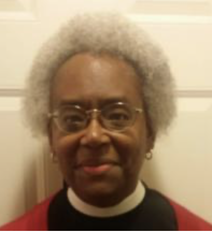
How did the position of Canon for Multicultural Ministries and Community Transformation come into being?
In 2019 the Diocese of Olympia created the position of the Canon for Multicultural Ministries and Community Transformation in the Diocese of Olympia. The position is both new and not so new. Our diocese has had a staff position that focuses on Multicultural Ministries for some time, but it has gone through many changes. Under Bishop Warner the Rev. Jerry Shigaki was the fulltime Canon for Ethnic Ministries and I served as his administrative assistant. Father Jerry retired, and I went on to ordained ministry. A part-time position was created under Bishop Rickel. The Rev. Arienne Davison held that position and later the position was folded into her role as the Canon to the Ordinary. The administrative assistant position was eliminated.
For several years multicultural ministries were not a priority in our diocese. That changed when three things happened:
- The Covid 19 pandemic disrupted the lives of faith communities, as it did to every other human community.
- In our diocese people of color longed for connection and began gathering in virtual communities to discuss what was happening to them. This was the genesis of what is now known in our diocese as The Circles of Color.
- The murder of Mr. George Floyd triggered a nationwide awakening to the issues of racism and that awakening rocked many communities of faith, including the Diocese of Olympia.
In April of this year, I was selected to serve in that new position. I am hardly the first person of color to serve in this type of position. However, I believe I am the first transgender woman to serve as a canon on a bishop’s staff.
What does the Canon for Multicultural Ministries and Community Transformation do?
The job description can be summarized in five points:
- The Canon for Multicultural Ministry and Community Transformation engages the diocese in becoming a more inclusive community.
- The Canon is responsible for oversight, facilitation, and implementation of a diocesan strategy to increase diversity in lay and clerical positions, as well as in programming.
- The Canon supports ethnic congregations, including the development of such congregations.
- The Canon engages the larger communities on issues of racial justice and reconciliation.
- The Canon is in active relationship with the Ethnic Ministries Circles of Color (EMCC) network and with the Office of the Bishop.
It is the many ways in which the work is done and the people I get to work with. I preach and teach all over our diocese. I lead workshops on multicultural ministries and racial justice. I write articles. I draft budgets. I oversee grants for multicultural ministry. I sit with vestries and bishop’s committees. I work with our Standing Committee, Diocesan Council, Commission of Ministry, Board of Directors, and the rest of our bishop’s staff. There is no part of the diocese’s life that I’m not involved in. I’m heartened by the deep commitment in our diocese to racial justice.
I take special joy in my work with the Circles of Color. We are an amazing mix of people: Indigenous people from the America, African Americans and immigrants from Africa, Asian and Asian Pacific Islanders, Latino peoples of many countries, biracial and multi-racial people, and Anglo folk in our Circle of Allies. It can be a spiritual experience just showing up in a meeting and seeing this visible representation of the kingdom of God as Revelation depicts it (…from every nation, from all tribes and peoples and languages…).
What challenges me in my work?
The challenge I face constantly is the one that Jesus spoke to when he said to his disciples, “the harvest is plentiful, but laborers are few.” There is so much work to be done. This is a moment in the life of the church in the United States when we can make hay. We can show our country that there is another way, the way of Jesus, the way of love, love that brings people who are very different together. The challenge is to step into that work, day after day, led by the Spirit of God.

 RSS Feed
RSS Feed